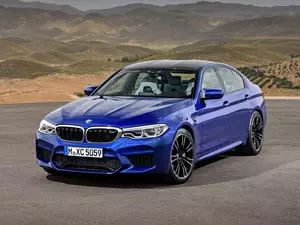
| Vehicle | Precise engine size | Difference from world average | Engine size to consumption ratio | Horsepower from 1 L | Engine size to 100 kg of weight |
|---|---|---|---|---|---|
| 4.4 V8 |
4.4 L (4395 cc) |
87.3% bigger | 200 cc to 1 mpg | 136 hp from 1 L | 231 cc to 100 kg |
| Competition 4.4 V8 |
4.4 L (4395 cc) |
87.3% bigger | 200 cc to 1 mpg | 142 hp from 1 L | 231 cc to 100 kg |
| Vehicle | 4.4 V8 |
|---|---|
| Precise engine size | 4.4 L (4395 cc) |
| Difference from world average | 87.3 bigger |
| Engine size to consumption ratio | 200 cc to 1 mpg |
| Horsepower from 1 L | 136 hp from 1 L |
| Engine size to 100 kg of weight | 231 cc to 100 kg |
| Vehicle | Competition 4.4 V8 |
| Precise engine size | 4.4 L (4395 cc) |
| Difference from world average | 87.3 bigger |
| Engine size to consumption ratio | 200 cc to 1 mpg |
| Horsepower from 1 L | 142 hp from 1 L |
| Engine size to 100 kg of weight | 231 cc to 100 kg |
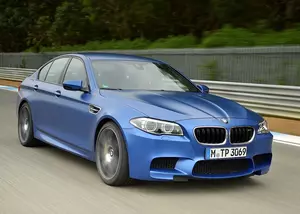
| Vehicle | Precise engine size | Difference from world average | Engine size to consumption ratio | Horsepower from 1 L | Engine size to 100 kg of weight |
|---|---|---|---|---|---|
| 30 Jahre 4.4 V8 |
4.4 L (4395 cc) |
87.3% bigger | 183 cc to 1 mpg | 136 hp from 1 L | 231 cc to 100 kg |
| Vehicle | 30 Jahre 4.4 V8 |
|---|---|
| Precise engine size | 4.4 L (4395 cc) |
| Difference from world average | 87.3 bigger |
| Engine size to consumption ratio | 183 cc to 1 mpg |
| Horsepower from 1 L | 136 hp from 1 L |
| Engine size to 100 kg of weight | 231 cc to 100 kg |
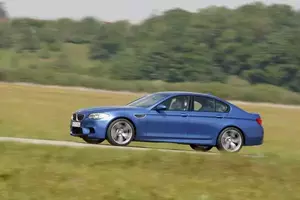
| Vehicle | Precise engine size | Difference from world average | Engine size to consumption ratio | Horsepower from 1 L | Engine size to 100 kg of weight |
|---|---|---|---|---|---|
| 4.4 V8 |
4.4 L (4395 cc) |
87.3% bigger | 183 cc to 1 mpg | 127 hp from 1 L | 231 cc to 100 kg |
| Competition Package 4.4 V8 |
4.4 L (4395 cc) |
87.3% bigger | 183 cc to 1 mpg | 131 hp from 1 L | 231 cc to 100 kg |
| Vehicle | 4.4 V8 |
|---|---|
| Precise engine size | 4.4 L (4395 cc) |
| Difference from world average | 87.3 bigger |
| Engine size to consumption ratio | 183 cc to 1 mpg |
| Horsepower from 1 L | 127 hp from 1 L |
| Engine size to 100 kg of weight | 231 cc to 100 kg |
| Vehicle | Competition Package 4.4 V8 |
| Precise engine size | 4.4 L (4395 cc) |
| Difference from world average | 87.3 bigger |
| Engine size to consumption ratio | 183 cc to 1 mpg |
| Horsepower from 1 L | 131 hp from 1 L |
| Engine size to 100 kg of weight | 231 cc to 100 kg |
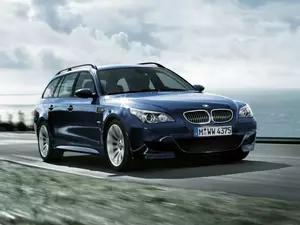
| Vehicle | Precise engine size | Difference from world average | Engine size to consumption ratio | Horsepower from 1 L | Engine size to 100 kg of weight |
|---|---|---|---|---|---|
| 5.0i V10 |
5 L (4999 cc) |
113.1% bigger | 312 cc to 1 mpg | 101 hp from 1 L | 263 cc to 100 kg |
| Vehicle | 5.0i V10 |
|---|---|
| Precise engine size | 5 L (4999 cc) |
| Difference from world average | 113.1 bigger |
| Engine size to consumption ratio | 312 cc to 1 mpg |
| Horsepower from 1 L | 101 hp from 1 L |
| Engine size to 100 kg of weight | 263 cc to 100 kg |
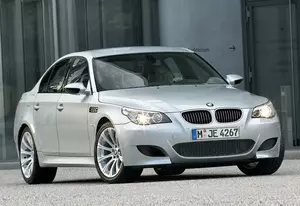
| Vehicle | Precise engine size | Difference from world average | Engine size to consumption ratio | Horsepower from 1 L | Engine size to 100 kg of weight |
|---|---|---|---|---|---|
| 5.0i V10 |
5 L (4999 cc) |
113.1% bigger | 312 cc to 1 mpg | 101 hp from 1 L | 278 cc to 100 kg |
| Vehicle | 5.0i V10 |
|---|---|
| Precise engine size | 5 L (4999 cc) |
| Difference from world average | 113.1 bigger |
| Engine size to consumption ratio | 312 cc to 1 mpg |
| Horsepower from 1 L | 101 hp from 1 L |
| Engine size to 100 kg of weight | 278 cc to 100 kg |
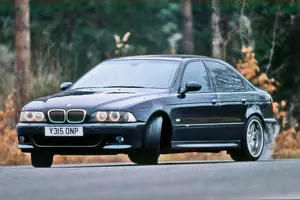
| Vehicle | Precise engine size | Difference from world average | Engine size to consumption ratio | Horsepower from 1 L | Engine size to 100 kg of weight |
|---|---|---|---|---|---|
| 4.9 |
4.94 L (4941 cc) |
110.6% bigger | 291 cc to 1 mpg | 81 hp from 1 L | 275 cc to 100 kg |
| Vehicle | 4.9 |
|---|---|
| Precise engine size | 4.94 L (4941 cc) |
| Difference from world average | 110.6 bigger |
| Engine size to consumption ratio | 291 cc to 1 mpg |
| Horsepower from 1 L | 81 hp from 1 L |
| Engine size to 100 kg of weight | 275 cc to 100 kg |
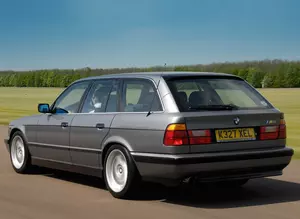
| Vehicle | Precise engine size | Difference from world average | Engine size to consumption ratio | Horsepower from 1 L | Engine size to 100 kg of weight |
|---|---|---|---|---|---|
| 3.8 |
3.8 L (3795 cc) |
61.8% bigger | 165 cc to 1 mpg | 89 hp from 1 L | 223 cc to 100 kg |
| Vehicle | 3.8 |
|---|---|
| Precise engine size | 3.8 L (3795 cc) |
| Difference from world average | 61.8 bigger |
| Engine size to consumption ratio | 165 cc to 1 mpg |
| Horsepower from 1 L | 89 hp from 1 L |
| Engine size to 100 kg of weight | 223 cc to 100 kg |
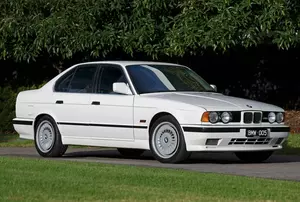
| Vehicle | Precise engine size | Difference from world average | Engine size to consumption ratio | Horsepower from 1 L | Engine size to 100 kg of weight |
|---|---|---|---|---|---|
| 3.5 |
3.54 L (3535 cc) |
50.7% bigger | 141 cc to 1 mpg | 89 hp from 1 L | 208 cc to 100 kg |
| 3.8 |
3.8 L (3795 cc) |
61.8% bigger | 158 cc to 1 mpg | 89 hp from 1 L | 223 cc to 100 kg |
| Vehicle | 3.5 |
|---|---|
| Precise engine size | 3.54 L (3535 cc) |
| Difference from world average | 50.7 bigger |
| Engine size to consumption ratio | 141 cc to 1 mpg |
| Horsepower from 1 L | 89 hp from 1 L |
| Engine size to 100 kg of weight | 208 cc to 100 kg |
| Vehicle | 3.8 |
| Precise engine size | 3.8 L (3795 cc) |
| Difference from world average | 61.8 bigger |
| Engine size to consumption ratio | 158 cc to 1 mpg |
| Horsepower from 1 L | 89 hp from 1 L |
| Engine size to 100 kg of weight | 223 cc to 100 kg |
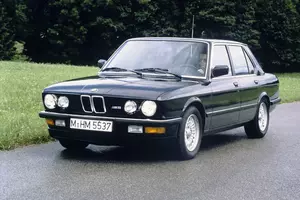
| Vehicle | Precise engine size | Difference from world average | Engine size to consumption ratio | Horsepower from 1 L | Engine size to 100 kg of weight |
|---|---|---|---|---|---|
| 3.5 |
3.45 L (3453 cc) |
47.2% bigger | - | 83 hp from 1 L | 247 cc to 100 kg |
| Vehicle | 3.5 |
|---|---|
| Precise engine size | 3.45 L (3453 cc) |
| Difference from world average | 47.2 bigger |
| Engine size to consumption ratio | - |
| Horsepower from 1 L | 83 hp from 1 L |
| Engine size to 100 kg of weight | 247 cc to 100 kg |
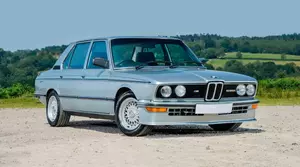
| Vehicle | Precise engine size | Difference from world average | Engine size to consumption ratio | Horsepower from 1 L | Engine size to 100 kg of weight |
|---|---|---|---|---|---|
| 3.5i |
3.45 L (3453 cc) |
47.2% bigger | - | 63 hp from 1 L | 247 cc to 100 kg |
| Vehicle | 3.5i |
|---|---|
| Precise engine size | 3.45 L (3453 cc) |
| Difference from world average | 47.2 bigger |
| Engine size to consumption ratio | - |
| Horsepower from 1 L | 63 hp from 1 L |
| Engine size to 100 kg of weight | 247 cc to 100 kg |